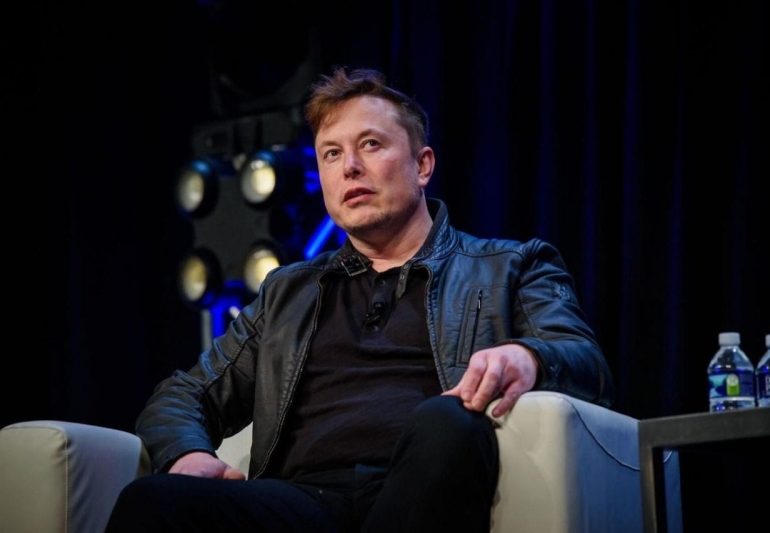When Elon Musk, the serial entrepreneur behind electric car maker Tesla and rocket company SpaceX, signed the Giving Pledge—promising to donate at least half of his fortune to charity—in 2012, he was worth $2 billion. Eight years later, he is significantly wealthier—and therefore has a lot more to give away.
Musk ranks seventh on the new 2020 Forbes 400 list of richest Americans, with a net worth of $68 billion thanks to Tesla stock’s enormous market cap. And what a joy ride it’s been: after the Forbes 400 list was finalized (using stock prices from July 24, 2020), Musk’s net worth surged above $100 billion in late August for a few days. Then as Tesla stock fell a bit earthward, he dropped down to $87.9 billion on September 4.
For this year’s Forbes 400 list, we changed the methodology for our philanthropy score to look at the total dollar amount of gifts that have reached charitable organizations, rather than counting dollars given to charitable foundations. As part of that effort, we traced how far along Musk is in his quest to fulfill his pledge. We estimate that so far he has given about $100 million to charitable causes. Because he’s given away less than 1% of his net worth, he received a philanthropy score of 1.
Musk is a famously cash-poor billionaire. Nearly all of his wealth, save for a few homes, is tied up in his stakes in Tesla and SpaceX, and he has pledged about half of his Tesla stock as collateral for loans. The 49-year-old Musk has said he plans to step up his giving later in life. In 2018, he tweeted that he would sell around $100 million worth of Tesla stock “every few years” for charity and will make “major disbursements in about 20 years when Tesla is in a steady state.”
Here’s what we know about his giving so far. Musk has donated about $25 million to nonprofit groups through his Musk Foundation since he launched the foundation in 2002. Over the years, he has transferred tens of millions of dollars from his foundation to two donor-advised funds; a spokesman for Musk told Forbes those funds had made grants totaling about $75 million. Because these funds are a bit like philanthropic bank accounts, without any requirement for annual distributions to charities nor any requirement to publicly disclose when grants are made, Forbes did not count gifts to donor-advised funds toward the giving we tallied—except when list members (like Musk) shared details about grants paid by such funds.
The Musk Foundation has made 350 contributions since 2002, with roughly half, or about $17 million, going to nonprofits focused on scientific research or education—including Ad Astra (Latin for “to the stars”), the experimental private school on the SpaceX campus that Musk cofounded in 2014, which was attended by his children as well as some children of SpaceX employees. (According to its LinkedIn profile, the school stopped its operations this year and spun off a new school, AstraNova, in Los Angeles.) The foundation’s largest contribution to date was a $10 million grant to YC Org, an entity affiliated with Y Combinator founder Sam Altman, in 2016. The organization’s “overall goal,” according to its latest filing with the IRS, “is to further scientific research that will ultimately be made freely available to the public.”
YC Org was the funding vehicle for OpenAI, a nonprofit cofounded by Musk and Altman in 2015 to “advance digital intelligence in the way that is most likely to benefit humanity as a whole, unconstrained by a need to generate financial return.” Musk stepped down from the board in 2018, citing a potential conflict of interest in the future as Tesla continued to become more focused on AI. The following year, OpenAI created a for-profit arm that took a $1 billion investment from Microsoft. In May, Microsoft and OpenAI revealed a new supercomputer built specifically for “training” OpenAI’s very large AI models.
Other beneficiaries include the University of Pennsylvania (Musk’s alma mater), the Wikimedia Foundation (which hosts Musk’s beloved Wikipedia) and Kitchen Community (now called Big Green), a Colorado-based charity that widens kids’ access to nutritious foods by creating school gardens, led by Musk’s brother Kimbal, which has received $483,000 from Musk’s foundation.
Musk has also made widely-publicized gifts of $10 million to the Future of Life Institute, a nonprofit devoted to keeping artificial intelligence “beneficial to humanity,” $10 million to sponsor the Global Learning XPrize and more than $6 million to the environmental advocacy group Sierra Club. Bloomberg reported in 2018 that Musk asked the Sierra Club to publicize the donations after he was criticized for giving to Republican politicians. (Musk’s spokesman declined to comment on the report.)
It’s clear that if Musk really wants to meet his Giving Pledge promise, he has his work cut out for him. In order to give away half of his $68 billion fortune Forbes calculated for The Forbes 400 list, he’d have to give away $2.3 million per day for the next 40 years.
"Forbes Georgia-ის სარედაქციო ბლოგპოსტების სერია "როგორ გამდიდრდა“ და "საქართველო რეიტინგებში".














